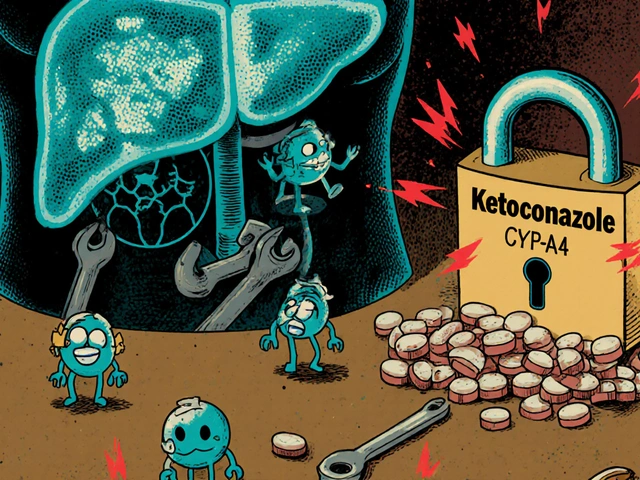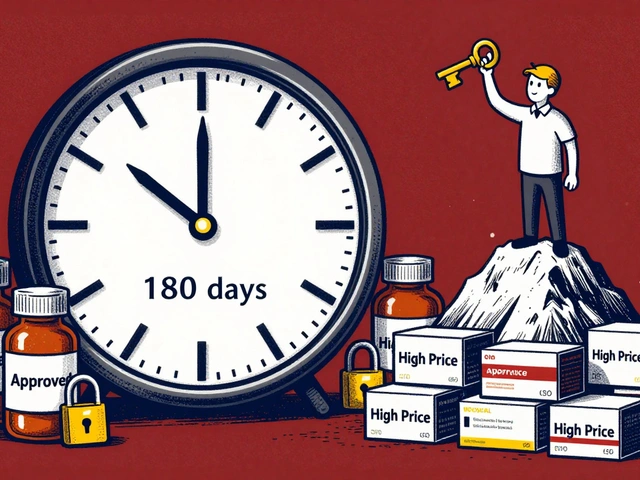Chlorella is a fresh‑water green algae that’s been turned into a powder or tablet you can add to smoothies, juices, or just swallow with water. People love it for its high protein content, loads of vitamins (especially B‑12 for vegans), and a bunch of antioxidants that help fight free radicals. If you’re looking for a natural boost to energy, immunity, or gut health, chlorella often shows up in the conversation.
First off, chlorella is packed with protein – about 60 % of its dry weight – so it’s a handy way to up your intake without animal products. It also contains chlorophyll, which some users say helps detoxify the blood and improve skin clarity. Studies have found that chlorella can raise levels of certain immune cells, so it may help you fight off colds faster. For athletes, the combination of protein and iron can support better endurance and recovery after a tough workout.
Another draw is its potential to support digestion. Chlorella’s fiber can act as a pre‑biotic, feeding the good bacteria in your gut. A healthier gut often translates to better mood, steadier blood sugar, and less bloating – things many of us appreciate in everyday life.
Typical dosages range from 1 – 3 grams per day, split into two servings if you’re new to it. Start with a small dose (around 500 mg) for a week to see how your body reacts, then gradually increase. Most people tolerate chlorella well, but a few experience mild stomach upset or an allergic reaction, especially if they’re sensitive to iodine.
Because chlorella is a natural source of iodine, anyone with thyroid issues should check with a doctor before adding it to their routine. Also, if you take blood thinners, be cautious – chlorella’s vitamin K can affect clotting.
The quality of the supplement matters a lot. Look for products that are “pure‑cell” or “cracked‑cell” – the latter means the cell wall has been broken, making nutrients easier to absorb. Third‑party testing (like NSF or USP) is a good sign the product is free from heavy metals and contaminants. Avoid chlorella grown in polluted waters, as it can accumulate toxins.
So, how do you choose? Pick a brand that lists the origin of the algae, confirms a broken cell wall, and provides a certificate of analysis. A reasonable price point is usually $20‑$30 for 100 g of powder; if it’s much cheaper, the quality could be questionable.
In practice, you can sprinkle a teaspoon of chlorella powder into your morning smoothie, stir it into a glass of orange juice, or swallow a capsule with water. Consistency is key – give it a few weeks before judging the effects.
Bottom line: chlorella supplement can be a simple, nutrient‑dense addition to a balanced diet, especially if you’re after extra protein, antioxidants, and gut support. Start low, watch for any reactions, and pick a reputable brand. Your body will let you know if it’s a good fit.

Curious about chlorella? Get an evidence-based look at its nutrition, real benefits, safe dosage, side effects, and how to choose a clean, quality supplement.

A side‑by‑side look at Cyclogyl (cyclopentolate) versus other mydriatic eye drops, covering onset, duration, safety, cost and best‑use scenarios.

Drug-drug interactions can cause serious harm when medications clash in your body. Learn how liver enzymes, transporters, and genetics affect drug safety, and what you can do to avoid dangerous combinations.

The 180-day exclusivity rule under the Hatch-Waxman Act was meant to speed up generic drug entry-but now it often delays it. Learn how patent challenges, FDA rules, and corporate strategy keep prices high and patients waiting.

SNRI medications offer a dual-action approach to treating depression and chronic pain by boosting serotonin and norepinephrine. Learn how they compare to SSRIs, their real-world effectiveness, side effects, and why they're a key option for treatment-resistant cases.

Dependence on foreign manufacturing for pharmaceutical ingredients is causing widespread drug shortages. With over 80% of active ingredients coming from just a few countries, disruptions in China or India directly impact patient access to life-saving medications.